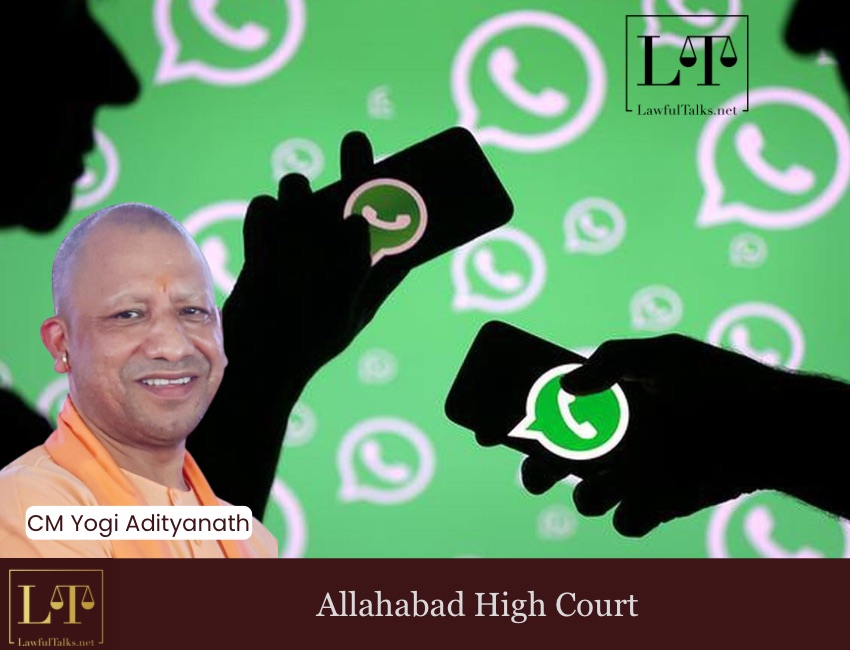Allahabad HC Sets Aside Afzal Ansari's Conviction, Allows Him to Continue as MP

An undesirable WhatsApp message inadvertently forwarded by the Additional Private Secretary of the Secretariat of the State of Uttar Pradesh against CM Yogi Adityanath and the DEPUTY CM of Uttar Pradesh got him sacked from service. Calling the order of his termination, ‘shockingly disproportionate’ Justice Alok Matur of the Allahabad HC ordered it quashed on grounds of ‘lack of evidence to establish intention to harm the reputation of the govt’.

The questionable WhatsApp read as, “As per UGC regulations, opportunities for the OBC and Scheduled Caste communities have effectively been closed. In this era of Ramrajya, Chief Minister Thakur Ajay Singh Yogi and Deputy Chief Minister Pandit Dinesh Sharma, while purportedly eradicating casteism, have appointed 52 individuals from their own caste as Assistant Professors out of a total of 71 positions in Gorakhpur University."
(The above is the English translation of the original text, provided by the Court.)
Briefly stating facts, the petitioner, an Additional Private Secretary, who as an administrator of a WhatsApp group that was linked to his mobile number allegedly received a message on July 6, 2018. The message was deemed critical of the State Government and therefore objectionable. He tried to delete the message but accidentally, pressed the ‘forward’ button and the message got circulated in the WhatsApp group. The petitioner is said to have told the group members to delete the message but the efforts failed.
No complaint was lodged with the State Government by any group member and the petitioner on his own volition wrote to the Chief secretary of the State recounting the apparent mistake and apologizing for the same but disciplinary inquiry was ordered against him, nevertheless. Based on this letter, the State government instituted an inquiry against him.
To substantiate the charges against him the State Government presented four pieces of evidence, including provisions under Rules 3, 7 and 9 of the ‘Conduct Rules, 1956, besides the forwarded message itself. The petitioner, in his defense, argued that he had no intent to cause reputational harm to the government and that the message was forwarded inadvertently and the same was deleted promptly as well.
The inquiry committee’s report bore that charges against him could not be substantiated and no witnesses were available for cross-examination. Notwithstanding, the State government sought further clarification from the inquiry officer regarding the date and time of message deletion and whether the ‘delete for everyone’ feature had been exercised by the petitioner. The officer clarified that the petitioner’s WhatsApp version at the time only supported the ‘delete’ option and he had used this feature.
Notwithstanding the findings of the report the State government constituted a two- member Technical Committee which indicted the petitioner as ‘guilty of serious misconduct’, stating that the message could have been deleted within (1 hour 8 minutes 16 seconds). It was also stated that it was the responsibility of the ‘delinquent employee’ to state the ‘exact time’ when the message was deleted. The petitioner’s services were terminated forthwith prompting him to move a writ jurisdiction in the Allahabad High Court wherein a single bench of the court set aside the order of termination.
Issues for determination by the court was whether:
- The procedure adopted for conducting the inquiry by a technical team was inconsistent with the regular inquiry process as prescribed under the Rules,1999, and whether holding such an inquiry was contrary to the procedure established therein. Also, whether
- The punishment imposed upon the petitioner is disproportionate to the misconduct that was proven.
“In misconduct cases, it must first be determined whether the action was deliberate and whether it was serious enough to warrant severe punishment. The disciplinary authority's decision to terminate the petitioner's service was based on the report of the Inquiry Officer and the Technical Committee, which found that the petitioner forwarded the message but did not establish that he did so deliberately with the intent to damage the Government's reputation. The disciplinary authority assumed that since the petitioner deleted the message after realizing the severity of his action, this constituted an act of misconduct.”
“This administrative action is contrary to the authority vested in the disciplinary authority, as per Rule 9(2) of the Rules, 1999. There is no provision in the Rules for conducting a second inquiry de novo by appointing a new Inquiry Officer. Therefore, the petitioner's argument that the second inquiry, which can be termed as a 'Technical Inquiry Committee,' was conducted in violation of the prescribed procedure is valid.”
“The above principle is grounded in the legal maxim "Expressio unius est exclusio alterius," which implies that when a statute prescribes a specific method for performing an act, that method must be strictly followed, and no other course of action is permissible."
The bench noted the imperativeness to go through Rule 7, 8 & 9, of Rules, 1999, procedures that are prescribed under Rules for Government servants. After due consideration of arguments of both sides the court concluded that the dismissal order was disproportionate and warranted judicial intervention. “It is speculative to conclude that the circulation caused harm to the Government’s reputation’’ observed the court.
Consequently, the Writ petition was allowed and the dismissal order dated 7th September , 2020 was quashed. The petitioner was to be reinstated with all consequential benefits.
Case Details- Amar Singh v. State of U.P.

Shalini Chavan
Advocate, Bombay High Court
Latest Posts
Categories
- International News 19 Posts
- Supreme Court 352 Posts
- High Courts 366 Posts




























































































































































































































































































































































































































































































































































































































































































































































